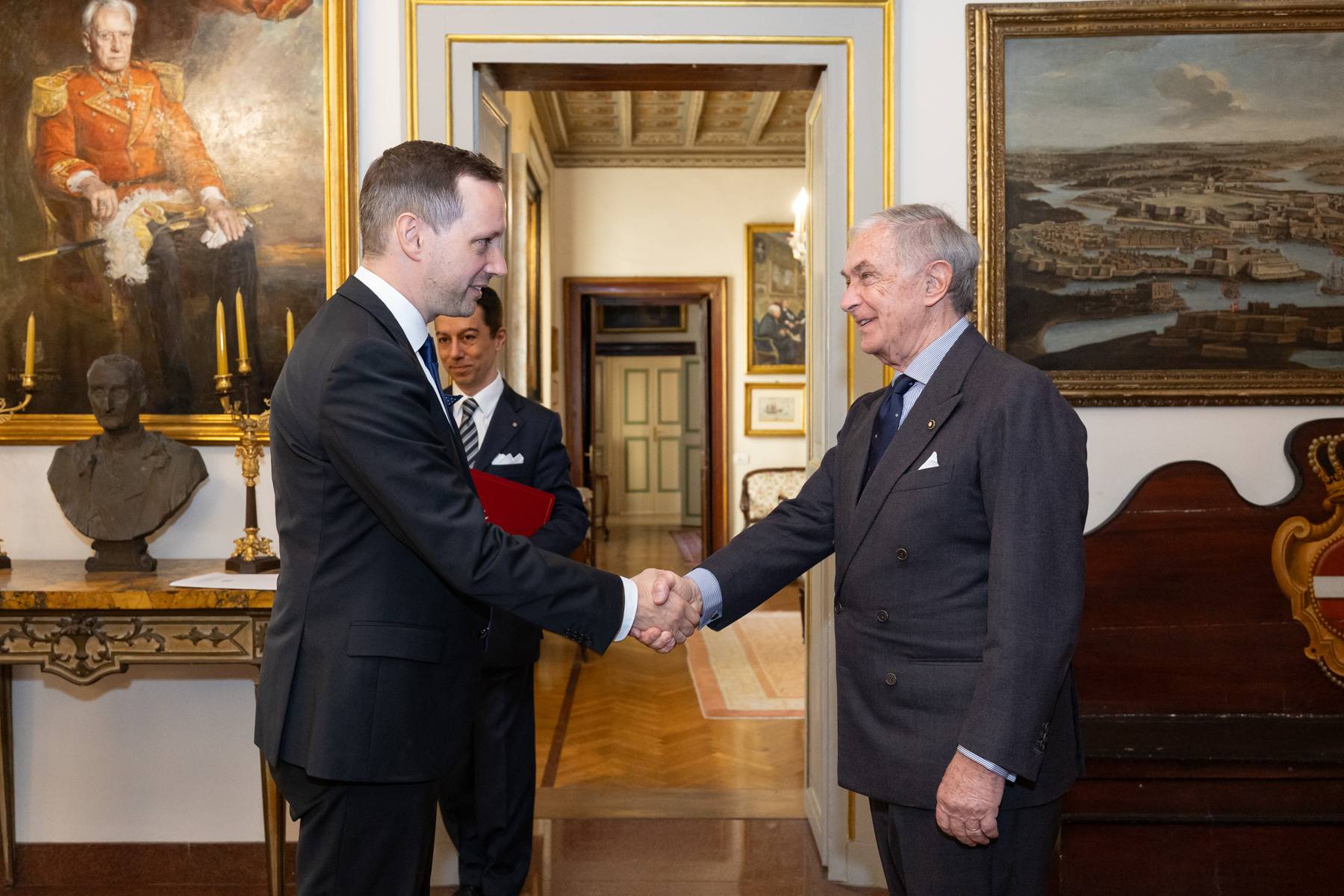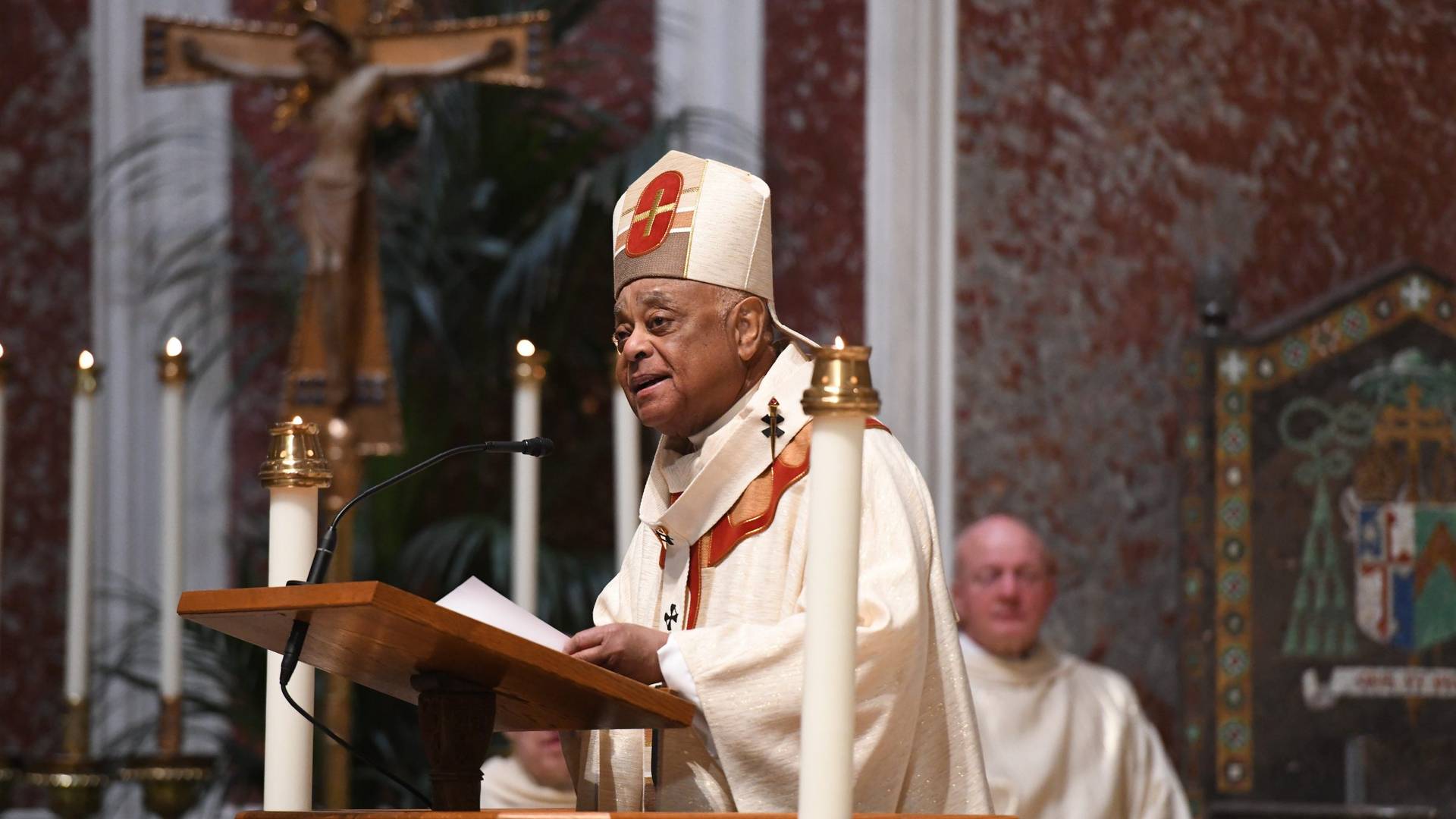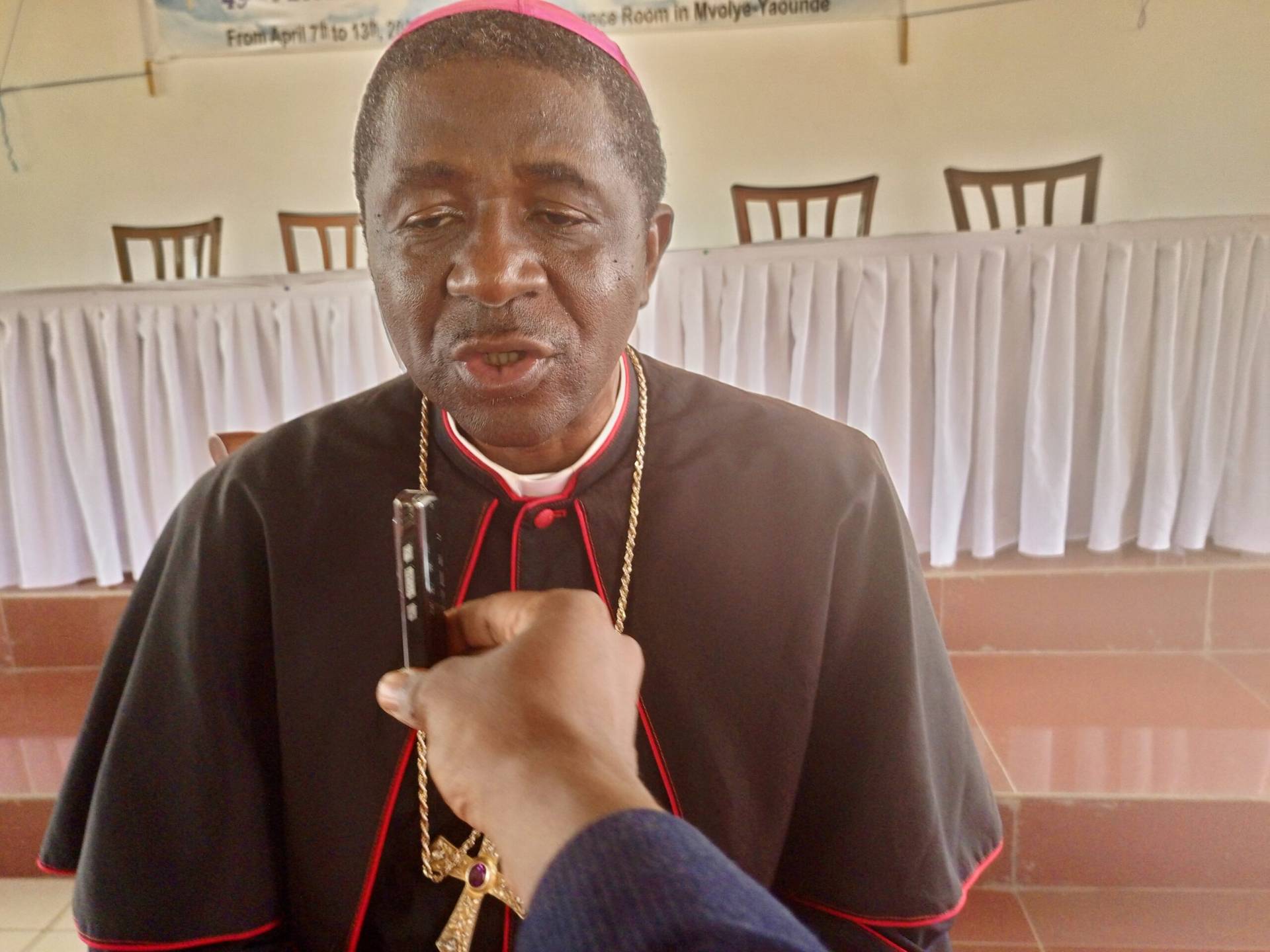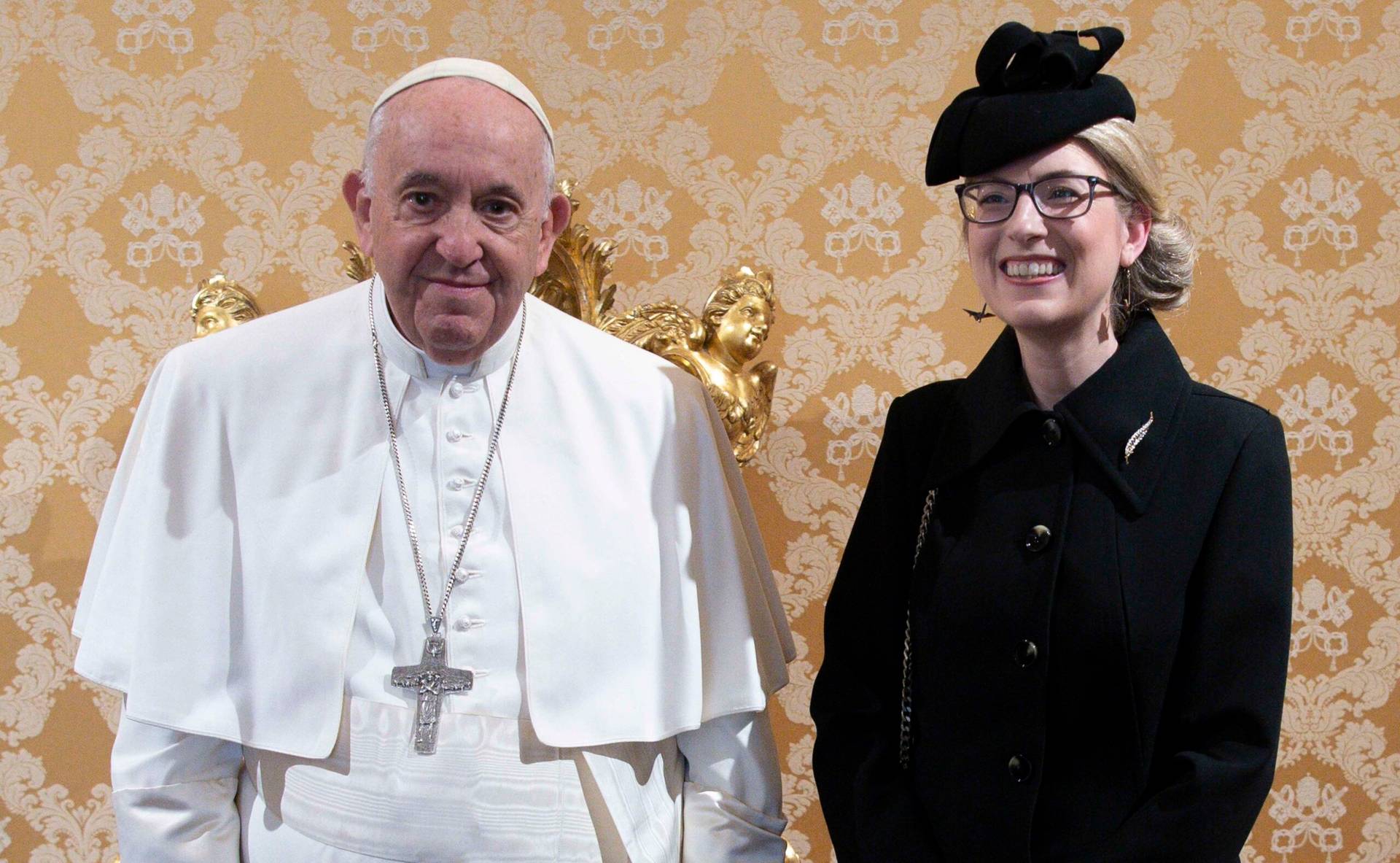[Editor’s Note: Alexandra DeSanctis graduated from the University of Notre Dame in 2016 where she was executive editor of the Irish Rover, Notre Dame’s independent student newspaper that focuses on maintaining the university’s Catholic mission and identity. She was the William F. Buckley Jr. Fellow in Political Journalism with the National Review Institute for two years and is now a staff writer at National Review, covering politics, culture, and the pro-life movement. She is also on the Ordered Liberty podcast with David French. She spoke to Charles Camosy.]
Camosy: Despite your meteoric rise at National Review, you only graduated from the University of Notre Dame in 2016, right? What can you report from that corner of Catholic higher education? Does it face similar pressures and problems as higher education in the U.S. more broadly?
DeSanctis: I think the situation at Notre Dame is very unique, and the challenges facing the university are pretty distinct both from those facing other Catholic schools in the U.S. and those facing other institutions of higher education (although I think the problems are more similar to those that secular institutions face).
Something I always tell young Catholics, or Catholic parents, is that it’s definitely possible to go to Notre Dame and craft for yourself an authentically Catholic education, and a better education on the whole than what you can find most other places, in my opinion. There’s also a really active and vibrant Catholic community there that can often go unnoticed. At the same time though, I got a firsthand look at how unsure Notre Dame is about how to answer the question of what it means to be a Catholic university, and what that looks like in practice.
There is a tangible Catholic spirit on campus — look at how popular the Grotto is as a place for prayer, remember that there’s an actual basilica right on campus, and there are chapels in every student dorm with the Eucharist present at all times. But as readers surely know, most of the major decisions coming from the university administration in recent years have belied that fact. Consider the Obama honorary degree in 2009, the Laetare Medal to John Boehner and Joe Biden the year I graduated, or the recent decision to comply with the HHS mandate and subsidize contraception for students in the university health-care plan. I think there’s a lot of pressure on Notre Dame, and rightly so, to be a voice for authentic Catholic values in our public dialogue, and because of its Catholic character.
Notre Dame has the capacity to educate students in the fullness of the truth in a way that just isn’t possible at secular universities. I just think pretty often it doesn’t live up to that huge moral obligation — and that’s even more obvious, and disappointing, from the perspective of someone who went to Notre Dame recently and loves the university very much.
I saw on Twitter that you were among the 45,000-plus signatories of a letter from women, which was sent to Pope Francis in light of the most recent turn in the sex-abuse and cover-up crisis facing the Church. What was the basic thrust of the letter? Why did you sign it?
The letter implores Pope Francis to answer the questions raised by the allegations in Archbishop Viganò’s testimony from August, and I think it’s particularly potent because it’s addressed to him by faithful Catholic women, and so many of us.
Women have a particular understanding of the importance of relationships and safety in the Church, and I think it’s essential for us to be speaking very loudly right now for a variety of reasons, not least of which is that it shows non-Catholics women are very invested in the health future of our Church — it’s not a totally “male-dominated” institution. One of the main points in our letter is that Pope Francis could very easily dispel at least some of the current confusion by simply choosing to provide information that he very clearly has available.
I signed the letter because the situation facing the Church right now has felt more than a little hopeless at times, especially when it comes to whether or not we’ll actually get the answers we deserve. But the greatest sense of hope I’ve gotten so far — aside, of course, from the realization that our faith is still completely true and that the sacraments remain readily available — has been from the fact that so many in the laity are working together to uncover as many answers as we can and to hold our leaders accountable in whatever role or vocation we find ourselves. For me, signing this letter was one small way of doing that.
Do you have a sense about how young Catholics in the U.S. are handling the sex-abuse crisis? Are those of us who live and breathe this stuff, do you think, in a different place than, say, more normal people who go about their day-to-day lives mostly worrying about very different things?
Just a few months ago, I had the chance to sign an open letter from young Catholics to the Church hierarchy, asking in part for an independent investigation of clergy sex abuse in the U.S. I think the vast majority of young Catholics would agree with a lot of what we wrote, although I can only speak anecdotally.
As you say, not every Catholic pays as close attention to every detail as you and I do, but I have actually been very surprised by how many of the people I know are following this story much more closely than they follow other news — and especially by how deeply they care about finding out what has actually happened in churches across the U.S., and what was done about it.
I’m not sure if the outrage will be as sustained as we’d like, and it feels like it’s already waning a bit, but I do get the sense that young Catholics don’t want to go back to the status quo. Now that we know so much corruption like this is out there, it’s tough to imagine Catholics accepting the notion that we should simply go back to “blissful” ignorance.
What about the upcoming “Youth Synod”? Some understandably believe now is not the right time for compromised bishops to be holding such an event, while others believe, done rightly, it has the chance to be the kind of thing the Church needs right now to address issues which need addressing. Where do you stand on this?
My sense is that young people at the moment are, very understandably, not all that receptive to Church leaders reaching out with anything other than a full accounting of what sexual abuse and misconduct has taken place, who knew about it, and what they did in response.
It’s fairly clear that most Church leaders are hoping the synod can go on as if nothing has happened — as if the Church wasn’t brutally shaken this summer — and I just don’t think that’s the case. Unless they’re planning to use the synod as a time to take seriously the very real concerns of young Catholics about corruption and abuse in the Church, I don’t see how it could bear as much fruit as a thriving Church would hope.
As powerful and true as Catholic moral teaching is, and despite how desperately young people today need it, it will fall on deaf ears if it’s coming from a hierarchy that won’t own up to its severe deficiencies in handling abuse and misconduct.
Though you are on staff at a place like National Review, I noticed an openness from you–and, frankly, a number of other young Catholics and Evangelicals–to buck traditional notions of what it means to be associated with ‘the right.’ Is that fair? Add the destabilizing effect of Trump into the mix–along with the terrible approval ratings of both major parties–and we have a very interesting opportunity to rethink our politics at the moment. Maybe one which could provide a more natural home for traditional Catholics and Evangelicals?
Starting my work at National Review just before Donald Trump clinched the GOP nomination in the summer of 2016 has made for a very interesting ride the last two years! So my perspective on this question is definitely colored by that: I think a huge amount of the political shifting we’ve seen is due to how the “Trump phenomenon,” if we can call it that, has redefined the way people view conservatism (I hesitate to say that it’s actually redefined conservatism; I’m not sure it has). On the left, the increasingly radical approach to social issues (abortion, religious freedom, and gender identity at the top of the list) is obviously very alienating to Christians, and on the right, the lockstep defenses of some of Trump’s worst instincts and ideas has had a similar effect.
Young people are disillusioned, whether they’re religious or not. I think that’s why you see so many people my age latching onto Bernie Sanders, or similar far-left rhetoric that promises to totally shake up the political order — and Trump represents something similar on the right, although his shakeup is an effort to go back to the way things were rather than transform society into something new.
Among young Catholics in particular, I certainly sense an openness to straying from one political party or the other at times, but the main problem is there’s really no new “home” to depart for at the moment. Whether that desire for something more coherent will lead to rebuilding responsible political parties by slowly electing virtuous leaders, or whether it will necessitate some kind of third-party consensus, I don’t know.
There is significant political and ideological diversity in the U.S. pro-life movement right now–again, particularly among young people. And though sometimes that produces tensions, I’m not sure they are altogether unhealthy ones. In my view, different parts of the pro-life movement can and often do push each other in dynamic and productive ways which make us better rather than worse. Is this the way you see it? What do you make of the diversity of the pro-life movement?
This is something that I often think about in the context of the March for Life, because it’s always so heartening to me to see groups like Feminists for Life or Atheists for Life or Democrats for Life there. To me, nothing could better exemplify the “open tent” nature of our movement, and I like that, because I don’t ever want to require people to sign on to a laundry list of agenda items or beliefs in order to consider themselves pro-life.
My work obviously focuses a great deal on the anti-abortion aspect of being pro-life, and I think that has to be our biggest focus and endgame right now because of the sheer loss of life involved. But I do think the voices of those in our community espousing pro-life perspectives on a variety of political issues and debates is something to celebrate — not only because it has a positive effect on the culture, but also because it shows skeptical people out there that being pro-life isn’t just about being “pro-birth” as we’re so often accused of. It actually is about valuing the human person all throughout life.














